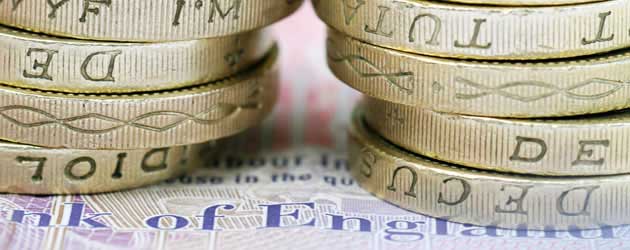
The Pound to Japanese Yen exchange rate (GBP/JPY) rallied higher from 158.30 to 158.50 earlier this morning as the Japanese Trade Balance deficit came in worse-than-expected at -¥932.1 billion.
The Japanese economy, the world’s third largest, relies heavily on its lucrative export industry, meaning that traders of the Yen were particularly disheartened by the news that exports decelerated from 14.7% to 11.5% in September. The majority of market players had predicted Japanese exports to rise slightly to 15.3%.
The Japanese Yen has depreciated by -20% against the Pound during the past 12 months, as the Bank of Japan’s ambitious quantitative easing scheme has driven investors out of the safe haven asset. The BoJ purchases approximately $70 billion of assets each month in an attempt to end a disinflationary spiral that has limited Japan’s growth prospects since the late 1990’s.
The expansive stimulus measures appear to be paying off so far, with inflation currently at a 5-year high of 0.9%. Business Confidence has also improved, and is currently at a 6-year high. Another benefit of the BoJ stimulus is that Japanese exports are now more affordable to foreign buyers due to the Yen’s heavy depreciation.
GBP/JPY gave back its daily gains earlier this morning when BoJ Governor Haruhiko Kuroda said that the Central Bank is “on track” to reach its 2% inflation target. Kuroda commented that his stimulus programme was “clearly having its desired effects, and the Japanese economy is steadily moving towards achieving the price stability target”.
Although the Japanese Governor said that the BoJ will stick to its easing programme until inflation is firmly anchored at 2%, investors interpreted his comments to mean that additional stimulus is unlikely at this juncture and this bolstered demand for the Yen.
The economic calendar is looking fairly sparse today, but there are a number of key events due to be released later this week.
Tuesday’s US Non-farm Payrolls report, which was delayed during the government shutdown, is likely to yield massive market volatility: traders are now fairly confident that Federal Reserve asset purchases will continue at $85 billion a month for the rest of the year and a subdued labour market result will confirm this. However, an unexpectedly positive result would throw a spanner in the works and could lead to a renewed bout of risk aversion if taper speculation was to proliferate once more.
On Wednesday the Bank of England release the Minutes from its latest Central Bank meeting, which is likely to show a less dovish approach to monetary policy and could therefore give Sterling a bit of a boost.
Friday’s UK third quarter GDP report is predicted to show growth of around 0.8%, but the potential exists for scores both north and south of this mark. A surprise print of 1.0% could send the Pound past significant resistance against both the Euro and the US Dollar.

Comments are closed.